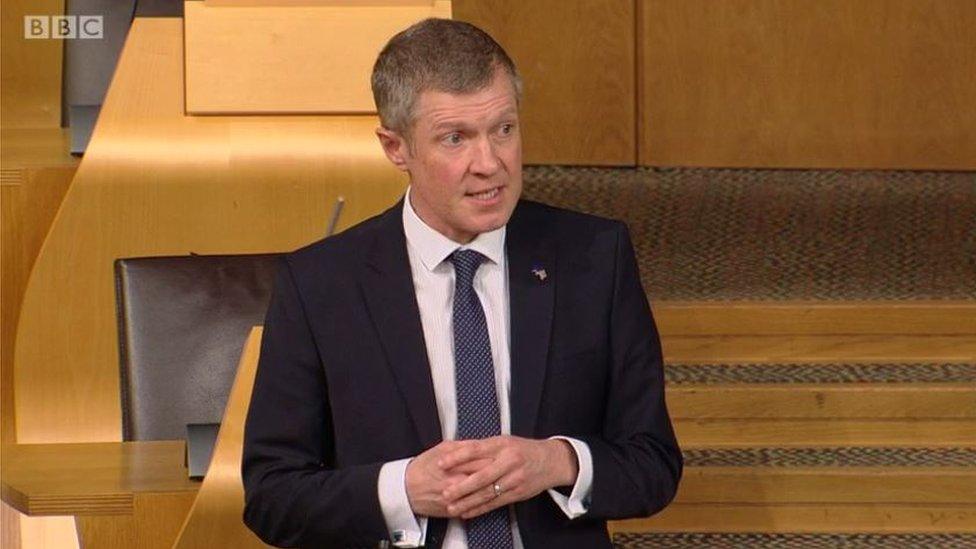Greens 'not willing' to see Scottish budget fail
- Published
Patrick Harvie says he and the Scottish Greens would not be willing to see emergency cuts happen
The Scottish Greens are "not willing" to see the Scottish government's budget fail, the party's co-convener has said.
Patrick Harvie told the BBC's Politics Scotland programme that the budget falling would see cuts to services.
The Scottish government needs opposition support for its tax and spending plans, with the first vote on the budget bill, external on Thursday.
Other parties have all but ruled out a deal, but Mr Harvie said he was not willing to see the budget fall.
If the proposals are not agreed, it will be the first time Holyrood has rejected a budget bill at stage one. One budget fell at the final hurdle in 2009, external, after two Green MSPs - one of them Mr Harvie - withdrew their backing shortly before the final vote.
The Greens and Liberal Democrats were seen as the parties most likely to strike a deal for the current budget proposal. Both had warned in recent days that they were some way from agreement with Finance Secretary Derek Mackay, after previous votes had ended in stalemate.
'Only party being constructive'
Mr Harvie, who has been seeking changes over tax, told the BBC he wanted the government to give ground - but was not willing to scupper the budget altogether.
He said: "I think we're the only party that's being constructive and consistent in this process.
"There will be no budget if we can't get agreement across the chamber, and a majority support a budget.
"If parties just dug their feet in and said 'my way or the highway' then the whole thing would fall and we would begin to see emergency cuts being made to public services across Scotland.
"I'm not willing to see that happen, but I am entirely willing to put pressure on the Scottish government to give ground on the position that it's taken so far."

ANALYSIS
Brian Taylor on whether a budget deal can be done
Not there yet - but it is looking increasingly likely at Holyrood that there will be a deal between ministers and the Greens.
Certainly, the pervasive gloom of previous days has lifted somewhat in ministerial corridors. Again, not there yet - but closer.
However, the emerging shape of the deal could bring added controversy if, as expected, it leads to an additional tax levy upon higher earners by contrast with original plans.
Any prospect of a deal with the Liberal Democrats seems to have evaporated - they wanted to extract a sizeable price for backing the SNP, the party of independence.
They wanted around £400m in spending on mental health care, education, police and Northern Isles transport. They were offered around £70m. So no deal - although talks are still continuing.

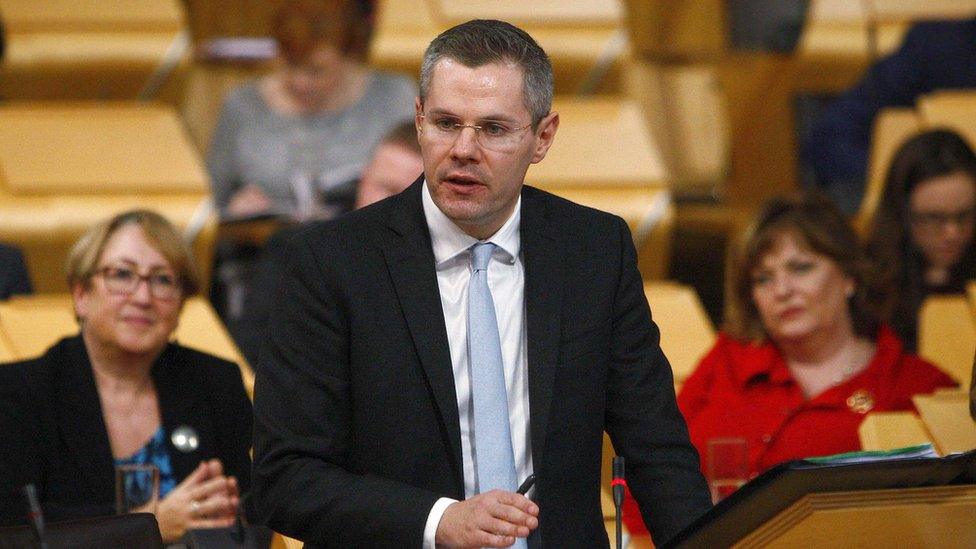
Mr Mackay has said he is "positive" about getting his budget plans through parliament
Mr Mackay has been holding negotiations with all parties, but he identified "room for manoeuvre" with the Lib Dems and Greens in particular.
However, the prospect of a deal with the Lib Dems before Thursday's stage one vote appears remote, after MSP Alex Cole-Hamilton told the BBC that the "distance is too great" between the parties.
He said his party had "engaged constructively" with the government seeking "a seismic investment" in mental health and education, but had not found enough common ground.
The Scottish Conservatives have told Mr Mackay that they would be willing to do a budget deal only if changes to tax were scrapped.
Finance spokesman Murdo Fraser said he would "talk constructively" with the government "so long as it abandons its bid to make Scotland the highest-taxed part of the UK".
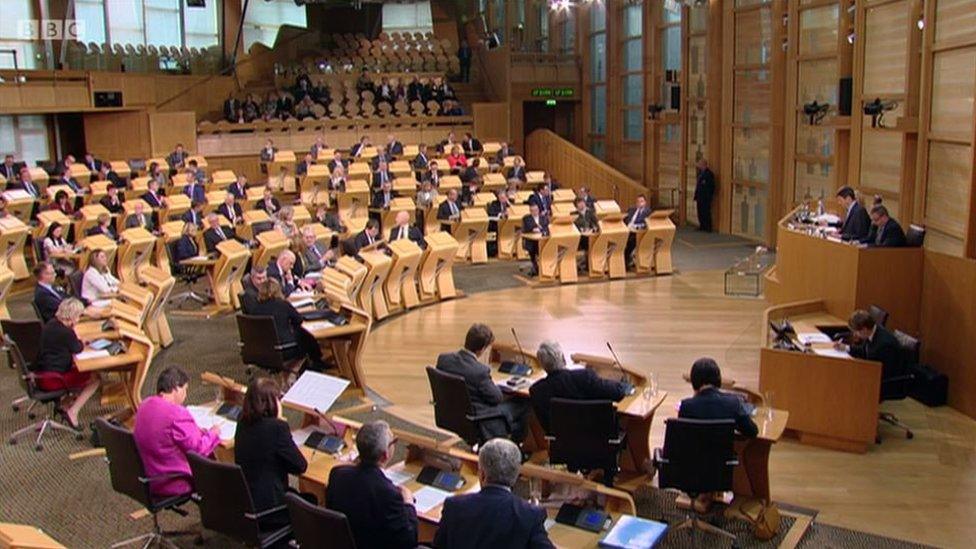
The first formal vote on the budget bill will take place on Thursday
Scottish Labour meanwhile has tabled an amendment for the debate calling for increases to income tax, and a new 50p rate for earnings above £150,000 to raise funds for local services.
Leader Kezia Dugdale said her party would not back any budget that cut funding from local services, calling her amendment a "positive alternative".
Mr Mackay has defended his proposals as "a budget for growth and public services".
When the bill was published he said: "It delivers increased investment in education, with £120m for schools to use at their discretion to close the attainment gap in 2017-18 - £20m more than previously announced.
"This budget will deliver record investment in the NHS through an additional £304m in resource funding, £120m above inflation as part of an overall commitment of an extra £500m above inflation over this parliament. And it protects low-income households from tax hikes and supports more and better jobs.
"This government seeks consensus and I remain in active discussions with other political parties."
- Published1 February 2017
- Published25 January 2017
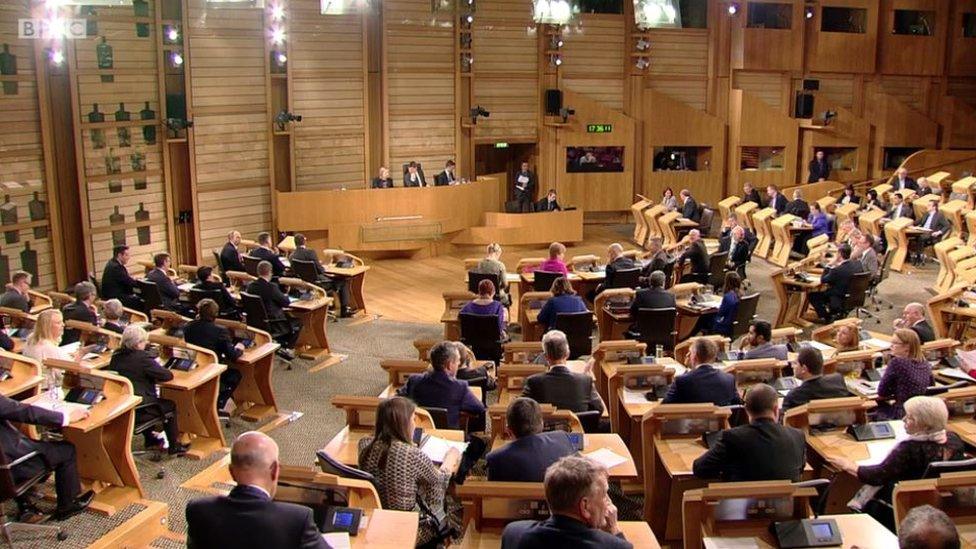
- Published22 January 2017
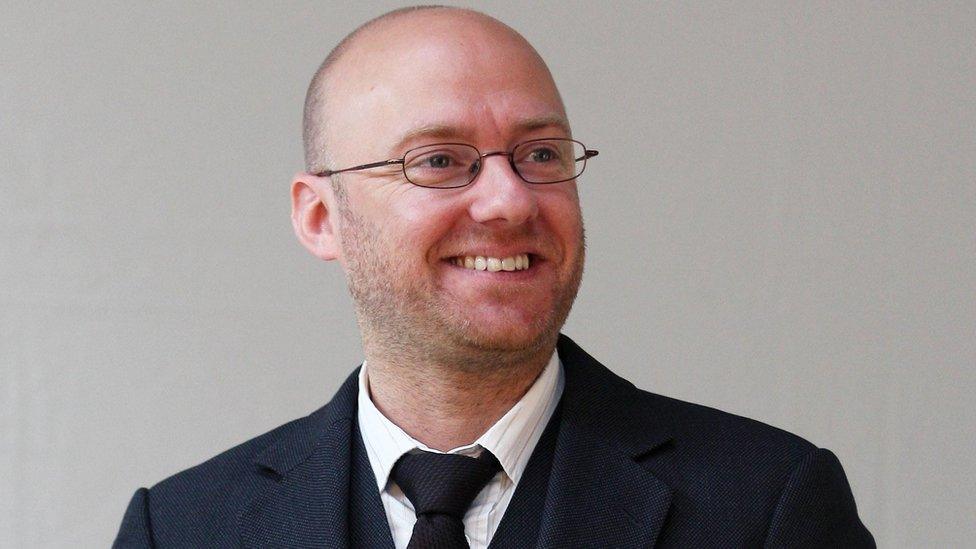
- Published19 January 2017
